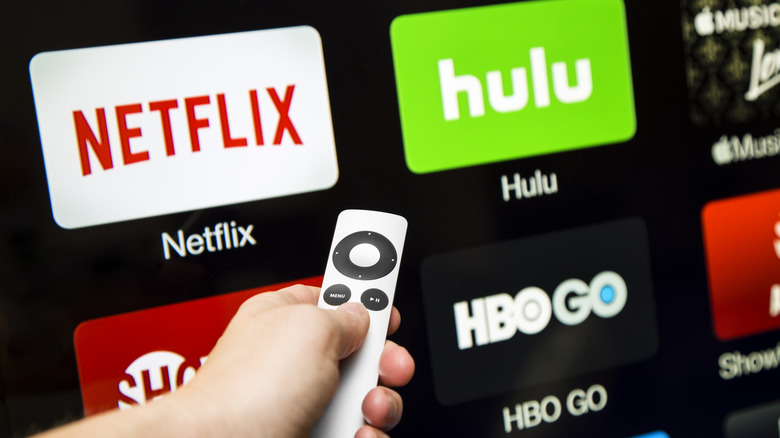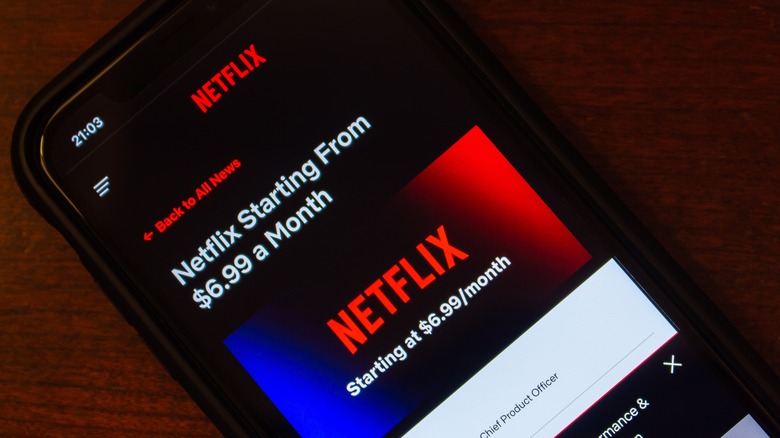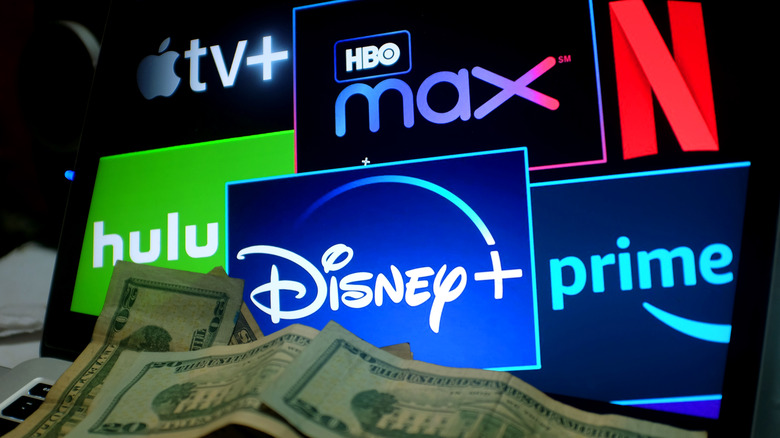Streaming Services Don't Actually Want You To Buy Their Ad-Free Subscription, Here's Why
Streaming services have revolutionized the way we watch content. You pay a monthly subscription and get access to a platform's entire catalog of TV shows and movies to watch on-demand. That was great when you were paying for Netflix and a couple of services at the most, but it's no longer as simple as that. Streaming services have multiplied over the last few years, and you now have to choose from Netflix, (HBO) Max, Hulu, Apple TV+, Prime Video, Paramount+, Peacock, and Disney+, among others.
To make matters worse, most streaming platforms have increased the price of subscriptions. The cheapest Disney+ ad-free plan is going up from $10.99 per month to $13.99 per month starting October 2023, while Hulu – also owned by Disney – is going up from $14.99 per month to $17.99 a month. Peacock's ad-free premium plan has gone up from $9.99 per month to $11.99 per month, and Paramount+ saw the same price hike, although it did add Showtime content to the mix. Max (formerly HBO Max) increased its monthly subscription from $14.99 per month to $15.99 per month.
While the ad-free tiers of many streaming services are becoming impossibly expensive, ad-supported tiers haven't been affected as much, and it looks like there's an underlying reason for that.
Streaming platforms make more money from ads
It turns out that ad-supported plans are actually more profitable for streaming services. According to The Hollywood Reporter, most major streaming platforms have found that the total revenue per user is higher for their ad-supported plans compared to the ad-free options. This means that the cheaper plans with ads are actually bringing in more money than the expensive ad-free plans.
Consequently, there seems to be a newfound push towards ad-supported tiers. Netflix dropped its $9.99 per month Basic plan earlier this year, leaving new and existing subscribers to choose between its $6.99 ad-supported plan or $15.49 per month ad-free plan. For subscribers on a budget, the tier with ads seems like the only logical choice. Other platforms like Hulu, Peacock, and Paramount+ have only marginally increased the prices of their ad-supported tiers, making them a more appealing option than the ad-free plans. Even Amazon is reportedly considering an ad-supported tier for Prime Video to grapple with increasing production costs.
The push seems to be working. The report says that over 40% of new Disney+ subscribers are choosing the platform's ad-supported plan, while Netflix's ad-tier subscribers have doubled from 5 million to 10 million. Advertisers will naturally be drawn to the massive subscriber base of these streaming platforms, while the platforms can start charging big bucks for ad spots in their most popular shows.
What the future of streaming will look like
Streaming isn't a profitable business. At the end of 2022, Netflix and Hulu were the only two major platforms to make a profit. Other services, including Disney+, Peacock, Max, and Paramount+ are all running on losses. Streaming isn't going anywhere, but for these platforms to actually be sustainable in the long run, ads seem to be the way forward, given that hiking the prices of the ad-free plans isn't going to increase subscriber counts.
While this doesn't mean that ad-free plans are going away, they're likely going to get even more expensive in the long run, particularly as streaming platforms try to push more subscribers to their cheaper ad-supported tiers. The future of streaming is going to look a lot like TV from a decade ago. That means you'll need to get used to watching ads again, with the only difference being that you can stream content on demand.
There is a caveat though. Subscribers have been binge-watching their favorite shows without ads for years now, so platforms will need to tread carefully to retain their user base. That means that ads should be relevant, and most importantly, not disrupt the streaming experience.


